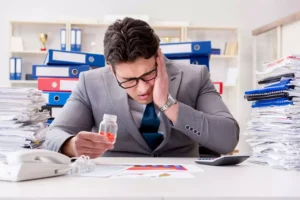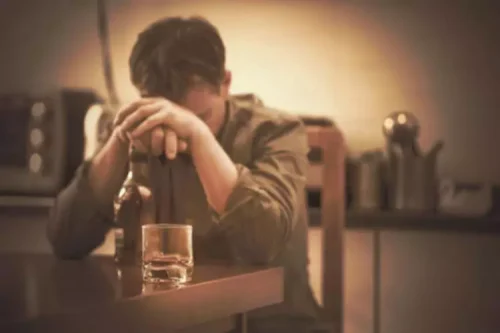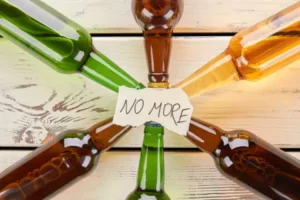
Some researchers have suggested that the effects of psychotherapy may account for some of the pill placebo response observed in medication studies. The use of medication to treat an alcohol use disorder and a major depressive disorder depends entirely on the individual and their circumstances. Some experts also suggest that both depression and alcohol use disorders share underlying pathophysiology in that they are both neuroinflammatory conditions. The aforementioned depressive disorders each have slightly different diagnostics criteria.

Throttle Addiction: Recognizing and Overcoming Excessive Gaming Habits
It can pose a barrier to seeking and entering treatment and perpetuate stigma and shame at treatment setbacks. By the same token, reduction of substance use has important public health benefits as well as clinical benefits for patients, and recognition of this could greatly advance medication development for treatment of addiction and its symptoms. Just as alcohol consumption causes a wide range of effects on the body and mind, so does the period of withdrawal. These effects contribute to day-after dread, even if you don’t have an anxiety disorder diagnosis. How long this anxiety (and other hangover symptoms) lasts depends on factors like how much you’ve consumed, your assigned sex at birth, and your weight.

Treatment for Alcoholism and Depression
See the Resources, below, for an NIAAA tool to help you locate these specialists. When patients report mood symptoms, it helps to clarify the possible relationship with alcohol use by asking, for example, about mood symptoms prior to starting alcohol use and on extended periods of abstinence. In addition, ask about current and past suicidal ideation or suicide attempts, as well as the family history of mood disorders, AUD, hospitalizations for psychiatric disorders, or suicidality. It is important to note that medications for alcohol use disorder are a first-line treatment.
Alcohol use and depression symptoms
- CBT focuses on helping you identify and change negative behaviors and thought patterns.
- Furthermore, these patients usually suffer from treatment-resistant depression.
- Recovering from depression and AUD is difficult because the disorders can worsen one another.
- Inpatient treatment allows for 24/7 monitoring and care in a hospital or other treatment facility.
- Additionally, only SSRI was examined in combination with medications for alcohol dependence.
- In people with a substance use disorder, less than 1% with depressive disorders had substance-induced symptoms.
People with a mental health history or family history are at a higher risk of developing depression after binge drinking. Conversely, depression can be a significant risk factor for alcohol abuse. Many individuals with depression turn to alcohol as a form of self-medication, seeking temporary relief from their emotional pain.
Addiction Treatment
Consenting participants aged 18 years and over were included in the study if they were alcohol-dependent with an AUDIT score of 15–40 (for males) and 13–40 does alcohol make depression worse for females. All aspects of detoxification and rehabilitation including medication, dosage and side effects, and right to withdraw at any time during study were explained after which consenting individuals signed a consent. Ethical approval was obtained from the Kenyatta hospital/University of Nairobi research and ethical review board.
- As a result, some experience anxiety as they look back on the events of the night before.
- Individuals with alcohol use disorder often develop a physical dependency on alcohol.
- Although the study participant had a general physical examination done (including blood pressure, temperature, and body weight check), no laboratory or radiological investigations were done in the current study.
- These additional conditions should be addressed as part of a comprehensive treatment plan.
- Analysis of data collected at the end of the sixth month showed a statistically significant association between depression and alcohol use (P value 0.02).
- Among those with AUD, about 15-30% overall have co-occurring post-traumatic stress disorder, with increased rates of 50-60% among military personnel and veterans.28 The two conditions may worsen each other.
- Persistent depressive disorder (PDD) has milder symptoms than MDD but lasts longer.
- Just check with your doctor before trying these, especially if you’re taking medication.
- This causes oxidative stress (an imbalance between helpful antioxidants and harmful free radicals that can lead to disease), marked by excess toxins in the body.
- Quitting alcohol can prevent anxiety and give you the space to develop healthy means of managing your condition.
It’s crucial for individuals struggling with co-occurring alcoholism and depression to seek professional help from healthcare providers experienced in treating dual diagnosis. Alcoholism and depression often go hand in hand, creating a complex and Drug rehabilitation challenging situation for those affected. The prevalence of co-occurring disorders, where an individual experiences both alcohol use disorder and depression simultaneously, is alarmingly high. This dual diagnosis presents unique challenges in treatment, as addressing one condition without considering the other can lead to ineffective outcomes and increased risk of relapse. Understanding the intricate relationship between these two conditions is crucial for developing effective treatment strategies and achieving long-term recovery.
If you or your loved ones are worried about your alcohol use or think you have alcohol use disorder, talk to your doctor or a mental health specialist about treatment options. People living with mental health disorders are at a higher risk of developing an addiction, but that doesn’t necessarily mean abusing alcohol will cause depression definitively. While alcohol consumption isn’t a direct cause of depression, it does influence the development of mental health disorders because of changes to the brain’s chemistry.


In some cases, you may receive a dual diagnosis of a major depressive disorder (MDD) and an alcohol use disorder (AUD). This co-occurring disorder isn’t uncommon, but it can be difficult to treat. Hangovers or withdrawal from alcohol can worsen anxiety symptoms, especially among people who drink heavily or those with alcohol use disorder. Anxiety occurs in addition to the typical health risks, which range from risky behaviors to weight gain, liver damage, and other physical effects. It’s important to note that individuals with co-occurring disorders may also experience other mental health conditions, such as anxiety disorders or ADHD.
The need for screening for depression in alcohol-dependent persons and continuous monitoring for it during treatment of alcohol dependence cannot be overemphasized. This is because untreated persistent depression may reduce the resolve to refrain from alcohol, or alternatively depression may lead to self-medication with alcohol 5, 6. This may explain why relapse rates are high after treatment for alcohol dependence. Analysis of data collected at the end of the sixth month showed a statistically significant association between depression and alcohol use (P value 0.02).
